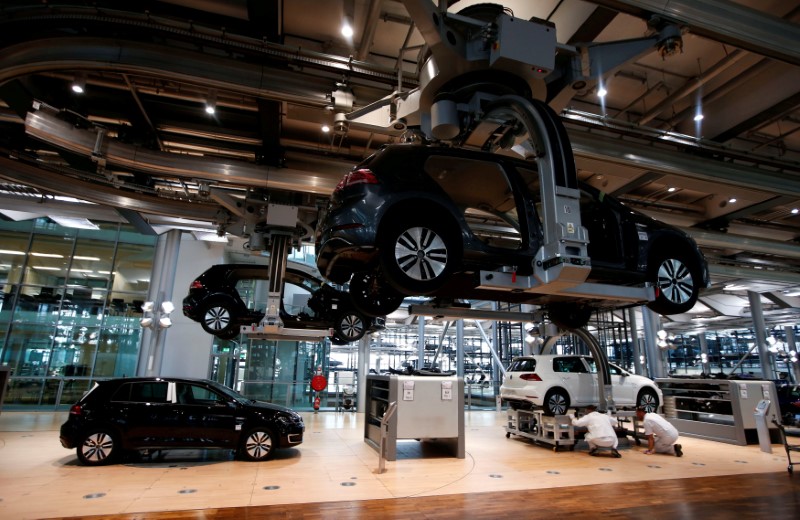Who is Kevin Hassett? Wolfe looks at the Trump ally tipped to become Fed Chair.
BERLIN (Reuters) - German factories shifted into overdrive in December as strong foreign demand propelled growth in activity to a record high and capacity constraints led to the biggest delivery delays in more than 20 years, a survey showed on Tuesday.
IHS Markit's Purchasing Managers' Index (PMI) for manufacturing, which accounts for about a quarter of the economy, jumped to an all-time high of 63.3 from 62.5 in the previous month.
The final figure, unchanged from the initial flash reading, was far above the 50 line that separates growth from contraction, as Europe's largest economy ended 2017 on an unusually strong footing.
"Twenty-seventeen was a record-breaking year for the German manufacturing sector," IHS Markit economist Phil Smith said.
Smith said the PMI not only posted the highest reading ever recorded since the survey began in 1996, but its current 37-month sequence of improving business conditions also beat the previous record set in the runup to the financial crisis.
"The goods-producing economy carries strong momentum into 2018, with new order growth at its highest for almost eight years and rising backlogs of work pointing to the need for further expansion in capacity," Smith added.
The PMI showed steep increases in output, new orders and exports. The level of new contracts received from abroad - mainly from Asia, the United States and Europe - rose at the fastest rate in the history of the survey.
Higher prices for raw materials such as steel and other metals pushed up input costs in December, and this in turn led to another push up in prices charged by manufacturers, the data showed.
"A lingering concern is that supply-side constraints pose a risk to the sector's ability to kick on," Smith said, adding that huge delivery delays would inevitably be borne out by sustained upward pressure on input costs.
